(soft instrumental music) – [Amanda] Hey Psych2Go
family, and welcome back. If you’re new to this channel and by the end of the video
you enjoy our content, do consider subscribing and
joining the Psych2Go fam. Now, let’s begin. Narcissistic victim syndrome is a term that collectively
describes specific and often severe side effects
of narcissistic abuse. Many experts acknowledge
narcissistic abuse can have a serious long-lasting
impact on emotional health, although it is not recognized
as a mental health condition. As a result of chronic abuse, victims may struggle with
symptoms of PTSD or complex PTSD. If they had additional trauma such as being abused by
narcissistic parents. (beeping) (upbeat music) With that in mind, here are
10 signs that might suggest you have narcissistic victim syndrome. Number one, you felt like you
had a perfect relationship with that person in the beginning. When you’re in a romantic relationship, this type of abuse usually begins slowly and it creeps up on you
after you’ve fallen hard and are in love with your partner. In the early stages of the relationship, this is when the love
bombing usually occurs. They may shower you with
gifts and affection and it can feel very intense. Then slowly, manipulative tactics start to invade the relationship and will replace the love bombing. In the case of narcissistic parents, they might also offer
love, adoration, praise, and financial support, until you do something to displease them and lose their favor. They use tactics such as
gaslighting and silent treatment which can leave you
questioning your sanity. And this is something that sticks with you even after you’ve cut
ties with that person. Number two, you feel like
you’re walking on eggshells. A common symptom of trauma
is avoiding anything that might make you relive
that particular trauma. Whether it be people,
places, or activities that pose a threat to you, you may feel like you’re
constantly worrying and being careful about what
you say or do around people because that is how you used to behave when you were around your abuser. You may present as
anxious and introverted, especially when in the
presence of other people, though you’re simply
acting out of extreme fear. Number three, you may have
experienced smear campaigns once the relationship ended. When breakups happen, it’s
common for people to take sides. This is no different when it
comes to a narcissistic abuser. They will twist your words and tell their version
of the story to others to try and get them to
feel sorry for them. They can often drum up
support from your loved ones by insisting that they only
have the best interest at heart. Then when you try to talk
about the abuse that happened, your loved ones might side
with the abuser over you. This can drop barriers between you and the people
in your support network and leave you feeling isolated. Number four, you feel
isolated and vulnerable. When no one will listen
to you or your concerns, this can leave you
feeling very much alone. When you feel alone, you’re vulnerable to further
manipulation from your abuser. They may pull you back
in with fake apologies, a hand of kindness, or by brushing their past
abuse under the rock. This tactic, which is called hovering, is the perfect time to pounce when you’re lacking in support since you are more likely
to doubt your perceptions of the abuse when you can’t
talk to anyone about it. Number five, you’ve developed
a pervasive sense of mistrust. Are you hypervigilant? Do you worry and get anxious
over other people’s intentions? The gaslighting techniques
used by the narcissistic abuser may have contributed to
how you view the world. And you may find that you have
a hard time trusting anyone, including yourself. Number six, you may
engage in self-sabotaging and self-destructive behavior. Victims often find themselves
ruminating over the abuse. This can enhance the frequency
of negative self-talk and the tendency towards self-sabotage. Malignant narcissists
will try and program you, conditioning you for self-destruction. This could potentially lead you to engage in risky
behaviors such as self-harm or even suicidal ideation. You might’ve developed a
knack for punishing yourself because of the toxic shame you carry, put there by the hypercriticism and verbal abuse of your abuser. If you feel like you’re
lacking any motivation to pursue your dreams and goals, then this could be a result
of narcissistic abuse. Number seven, you may experience unexplained physical symptoms.

Narcissistic abuse can trigger
anxious and nervous feelings that can trigger physical symptoms. The stress of chronic abuse may send your stress
levels into overdrive. As a result, your immune
system may take a severe hit leaving you vulnerable to
physical ailments and disease. You may notice symptoms such
as appetite changes, nausea, stomach pain, muscle aches and
pains, insomnia, and fatigue. Number eight, you may have
issues setting boundaries. The experience of narcissistic abuse can often leave you with
little respect for boundaries. This may be because when you tried to set
boundaries in the past, you may have been met with
challenges from the abuser who gave you the silent treatment until you did what they wanted. Once you end the relationship or gain distance from
a narcissistic parent, you promise yourself that
you won’t answer their calls or physically see them at all. However, even if you’ve tried to cut ties, your abuser is confident that they will eventually wear you down because you’ve set aside
your boundaries with them so many times before. If you’ve experienced narcissistic abuse, you might also have trouble
setting healthy boundaries in your relationships
with others in the future. Nine, you may be questioning
your own identity. When facing abuse, many people
adjust their self-identity to accommodate an abusive partner. You may have stopped
doing things you enjoy or spending time with friends and family to better appease your abuser. These changes can often
lead to a loss of identity during and after the abuse. It’s not uncommon for
victims of narcissistic abuse to experience dissociation and attachment from the physical world. Dr. van der Kolk writes
in his book titled, “The Body Keeps The Score” that dissociation is the essence of trauma. The overwhelming experience
is split off and fragmented so that the emotions,
sounds, images, thoughts, and physical sensations
take on a life of their own. Oof! Number 10, you may find
it hard to make decisions. When there has been a negative pattern of devaluation and criticism in your life, you might have very little self-esteem and confidence in yourself. Narcissistic abusers can make statements that imply that you are
unable to make good decisions. Abusive partners may have called
you stupid, or ignorant, or they might’ve insulted you with a false and affectionate tone. They can manipulate you into believing you
imagine parts of reality making it seem less important
than it is. This type of controlling and deceitfulness can affect the way you
make future decisions. So, did you relate to any of the signs? Let us know in the comments below. I wanted to take a second
to say that I… Um, sorry. Hi, it’s Amanda, the voiceover voice. I’m reading the script for the first time and I related to it. So I wanted to add a point that, in taking the time to learn about narcissistic
victim syndrome, you’re empowering yourself. Once you know you can grow. Acknowledging the effects of being in a narcissistic relationship is the first step to healing from one. As we close out, we want to say that not all
abuse is linked to narcissism, and not all people with a diagnosis of narcissistic
personality disorder will engage in abusive behavior. However, if you feel you might be a victim of this type of abuse, we encourage you to reach out for help. Talk to someone you can trust, like a good friend, a family
member, or a therapist. It’s not easy to leave
an abusive relationship, but with the right support,
you can move on with your life and start to heal from your past hurts. Like and share this video if it helped you and you think it could
help someone else too. The studies and references used are listed in the description below. Don’t forget to hit the Subscribe button for more Psych2Go videos, and thank you for watching. We’ll see you in the next one.
As found on YouTube15 Modules Of Intimate Video Training With
Dr. Joe Vitale – You’re getting simple and proven steps to unlock the Awakened Millionaire Mindset: giving you a path to MORE money, …

 3. 4 Hold 2, 3, 4, Now exhale, 2, 3, 4 And hold 2 3 4 Excellent. We can try something new next time and I’ll see you then, please note you can adapt this count to whatever feels most comfortable to you. Bye.As found on YouTube15 Modules Of Intimate Video Training With Dr. Joe Vitale – You’re getting simple and proven steps to unlock the Awakened Millionaire Mindset: giving you a path to MORE money, …
3. 4 Hold 2, 3, 4, Now exhale, 2, 3, 4 And hold 2 3 4 Excellent. We can try something new next time and I’ll see you then, please note you can adapt this count to whatever feels most comfortable to you. Bye.As found on YouTube15 Modules Of Intimate Video Training With Dr. Joe Vitale – You’re getting simple and proven steps to unlock the Awakened Millionaire Mindset: giving you a path to MORE money, …

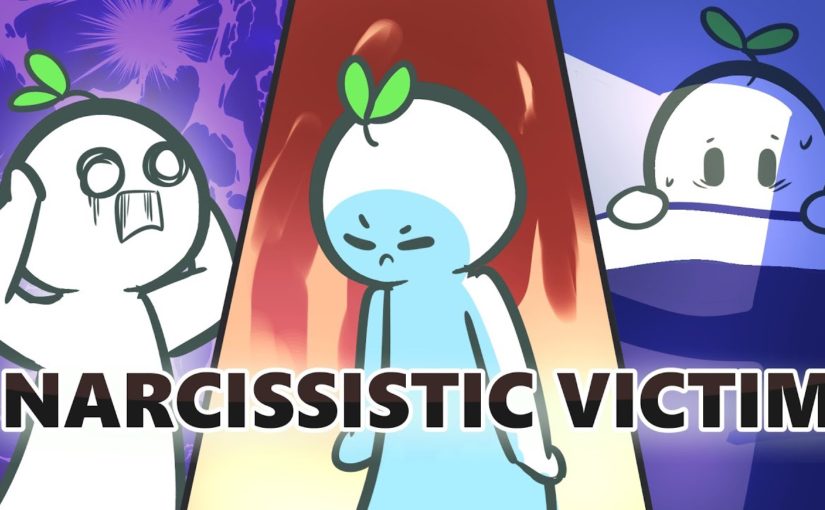
 Narcissistic abuse can trigger
anxious and nervous feelings that can trigger physical symptoms. The stress of chronic abuse may send your stress
levels into overdrive. As a result, your immune
system may take a severe hit leaving you vulnerable to
physical ailments and disease. You may notice symptoms such
as appetite changes, nausea, stomach pain, muscle aches and
pains, insomnia, and fatigue. Number eight, you may have
issues setting boundaries. The experience of narcissistic abuse can often leave you with
little respect for boundaries. This may be because when you tried to set
boundaries in the past, you may have been met with
challenges from the abuser who gave you the silent treatment until you did what they wanted. Once you end the relationship or gain distance from
a narcissistic parent, you promise yourself that
you won’t answer their calls or physically see them at all. However, even if you’ve tried to cut ties, your abuser is confident that they will eventually wear you down because you’ve set aside
your boundaries with them so many times before. If you’ve experienced narcissistic abuse, you might also have trouble
setting healthy boundaries in your relationships
with others in the future. Nine, you may be questioning
your own identity. When facing abuse, many people
adjust their self-identity to accommodate an abusive partner. You may have stopped
doing things you enjoy or spending time with friends and family to better appease your abuser. These changes can often
lead to a loss of identity during and after the abuse. It’s not uncommon for
victims of narcissistic abuse to experience dissociation and attachment from the physical world. Dr. van der Kolk writes
in his book titled, “The Body Keeps The Score” that dissociation is the essence of trauma. The overwhelming experience
is split off and fragmented so that the emotions,
sounds, images, thoughts, and physical sensations
take on a life of their own. Oof! Number 10, you may find
it hard to make decisions. When there has been a negative pattern of devaluation and criticism in your life, you might have very little self-esteem and confidence in yourself. Narcissistic abusers can make statements that imply that you are
unable to make good decisions. Abusive partners may have called
you stupid, or ignorant, or they might’ve insulted you with a false and affectionate tone. They can manipulate you into believing you
imagine parts of reality making it seem less important
than it is. This type of controlling and deceitfulness can affect the way you
make future decisions. So, did you relate to any of the signs? Let us know in the comments below. I wanted to take a second
to say that I… Um, sorry. Hi, it’s Amanda, the voiceover voice. I’m reading the script for the first time and I related to it. So I wanted to add a point that, in taking the time to learn about narcissistic
victim syndrome, you’re empowering yourself. Once you know you can grow. Acknowledging the effects of being in a narcissistic relationship is the first step to healing from one. As we close out, we want to say that not all
abuse is linked to narcissism, and not all people with a diagnosis of narcissistic
personality disorder will engage in abusive behavior. However, if you feel you might be a victim of this type of abuse, we encourage you to reach out for help. Talk to someone you can trust, like a good friend, a family
member, or a therapist. It’s not easy to leave
an abusive relationship, but with the right support,
you can move on with your life and start to heal from your past hurts. Like and share this video if it helped you and you think it could
help someone else too. The studies and references used are listed in the description below. Don’t forget to hit the Subscribe button for more Psych2Go videos, and thank you for watching. We’ll see you in the next one.
Narcissistic abuse can trigger
anxious and nervous feelings that can trigger physical symptoms. The stress of chronic abuse may send your stress
levels into overdrive. As a result, your immune
system may take a severe hit leaving you vulnerable to
physical ailments and disease. You may notice symptoms such
as appetite changes, nausea, stomach pain, muscle aches and
pains, insomnia, and fatigue. Number eight, you may have
issues setting boundaries. The experience of narcissistic abuse can often leave you with
little respect for boundaries. This may be because when you tried to set
boundaries in the past, you may have been met with
challenges from the abuser who gave you the silent treatment until you did what they wanted. Once you end the relationship or gain distance from
a narcissistic parent, you promise yourself that
you won’t answer their calls or physically see them at all. However, even if you’ve tried to cut ties, your abuser is confident that they will eventually wear you down because you’ve set aside
your boundaries with them so many times before. If you’ve experienced narcissistic abuse, you might also have trouble
setting healthy boundaries in your relationships
with others in the future. Nine, you may be questioning
your own identity. When facing abuse, many people
adjust their self-identity to accommodate an abusive partner. You may have stopped
doing things you enjoy or spending time with friends and family to better appease your abuser. These changes can often
lead to a loss of identity during and after the abuse. It’s not uncommon for
victims of narcissistic abuse to experience dissociation and attachment from the physical world. Dr. van der Kolk writes
in his book titled, “The Body Keeps The Score” that dissociation is the essence of trauma. The overwhelming experience
is split off and fragmented so that the emotions,
sounds, images, thoughts, and physical sensations
take on a life of their own. Oof! Number 10, you may find
it hard to make decisions. When there has been a negative pattern of devaluation and criticism in your life, you might have very little self-esteem and confidence in yourself. Narcissistic abusers can make statements that imply that you are
unable to make good decisions. Abusive partners may have called
you stupid, or ignorant, or they might’ve insulted you with a false and affectionate tone. They can manipulate you into believing you
imagine parts of reality making it seem less important
than it is. This type of controlling and deceitfulness can affect the way you
make future decisions. So, did you relate to any of the signs? Let us know in the comments below. I wanted to take a second
to say that I… Um, sorry. Hi, it’s Amanda, the voiceover voice. I’m reading the script for the first time and I related to it. So I wanted to add a point that, in taking the time to learn about narcissistic
victim syndrome, you’re empowering yourself. Once you know you can grow. Acknowledging the effects of being in a narcissistic relationship is the first step to healing from one. As we close out, we want to say that not all
abuse is linked to narcissism, and not all people with a diagnosis of narcissistic
personality disorder will engage in abusive behavior. However, if you feel you might be a victim of this type of abuse, we encourage you to reach out for help. Talk to someone you can trust, like a good friend, a family
member, or a therapist. It’s not easy to leave
an abusive relationship, but with the right support,
you can move on with your life and start to heal from your past hurts. Like and share this video if it helped you and you think it could
help someone else too. The studies and references used are listed in the description below. Don’t forget to hit the Subscribe button for more Psych2Go videos, and thank you for watching. We’ll see you in the next one.
 But does that happen within the human body if you just eat it? We didn’t know until recently. If you exercise without
watercress in your system, DNA damage shoots up, but if you’ve been eating a single
serving a day for two months your body’s so juiced up
on green leafy goodness no significant damage after punishing yourself
on the treadmill. So, a healthy diet can
you can get all the benefits of strenuous exercise
without the potential risks? We know regular physical exercise — a key component of a healthy lifestyle, but it can elicit oxidative stress. To reduce that stress
some have suggested pills to improve one’s
antioxidant defense system, but “those eating more plant-based
diets may naturally” “have an enhanced antioxidant defense system” without pills to counter
exercise-induced oxidative stress due to the increased
quantities of plants. Remember plant foods’ average
64 times more antioxidants than meat, fish, eggs, and dairy. And on top of that the
animal protein itself can have a pro-oxidant effect. But look, anyone eating sufficient
quantities of whole healthy plant foods could plausibly reach
an antioxidant status similar to those eating vegetarians. It’s not just about what
you’re eating less of, saturated fat and cholesterol, but what you’re eating more of,
the phytonutrients. Whether it’s about training longer or living longer, we’ve got to eat more plants.
But does that happen within the human body if you just eat it? We didn’t know until recently. If you exercise without
watercress in your system, DNA damage shoots up, but if you’ve been eating a single
serving a day for two months your body’s so juiced up
on green leafy goodness no significant damage after punishing yourself
on the treadmill. So, a healthy diet can
you can get all the benefits of strenuous exercise
without the potential risks? We know regular physical exercise — a key component of a healthy lifestyle, but it can elicit oxidative stress. To reduce that stress
some have suggested pills to improve one’s
antioxidant defense system, but “those eating more plant-based
diets may naturally” “have an enhanced antioxidant defense system” without pills to counter
exercise-induced oxidative stress due to the increased
quantities of plants. Remember plant foods’ average
64 times more antioxidants than meat, fish, eggs, and dairy. And on top of that the
animal protein itself can have a pro-oxidant effect. But look, anyone eating sufficient
quantities of whole healthy plant foods could plausibly reach
an antioxidant status similar to those eating vegetarians. It’s not just about what
you’re eating less of, saturated fat and cholesterol, but what you’re eating more of,
the phytonutrients. Whether it’s about training longer or living longer, we’ve got to eat more plants.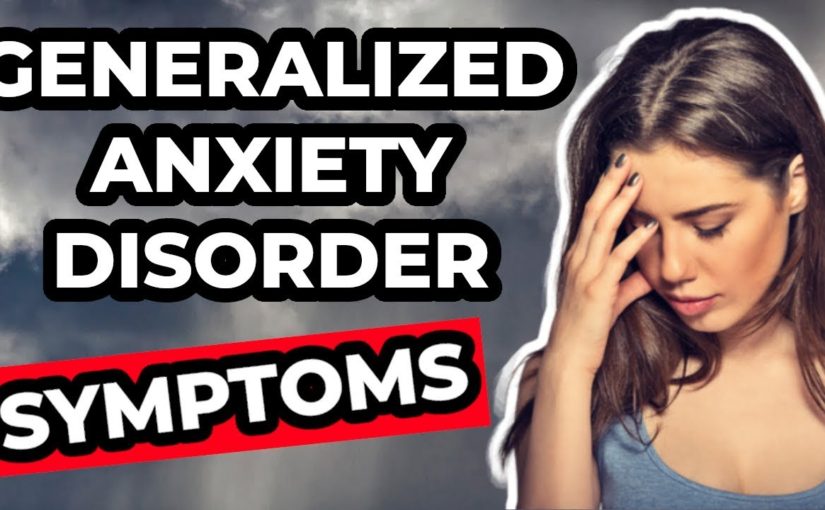


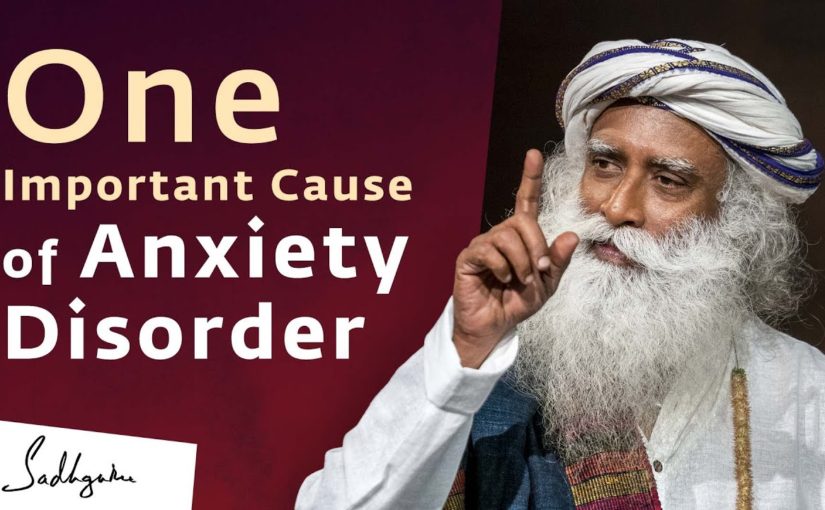

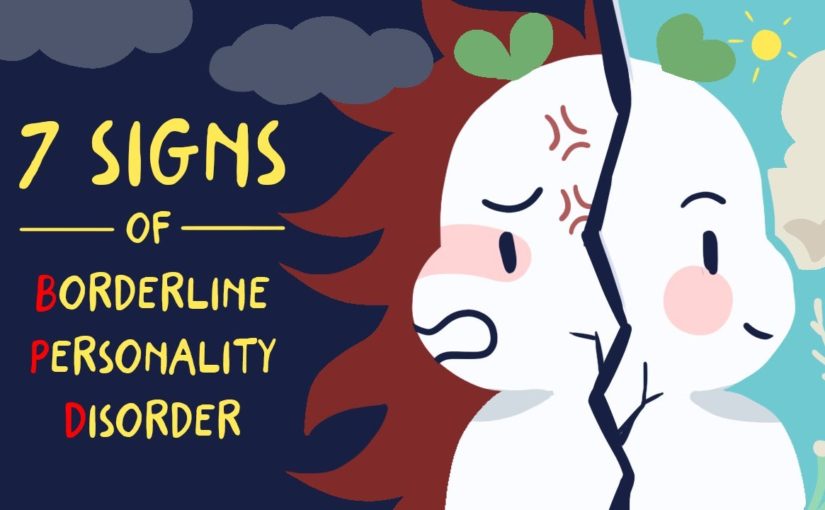
 This could manifest in an irrational fear that loved ones will
leave you, social anxiety, or a desire to please everyone around you to try and prevent them
from rejecting you. The fact that people
with BPD often struggle to maintain relationships
only adds to this fear. Five, unstable relationships. Do you face difficulty maintaining interpersonal relationships like friendships, sibling bonds,
or romantic relationships? It can be difficult for people with BPD to preserve relationships because they often idealize
or think very highly of and then romanticize someone for a while and then devalue distrust
or become disgusted with them. A 2016 study suggests
that some people with BPD react to relationship
stressors with impulsivity which generates instability
in relations as well. Six, impulsive decisions. While cycles of impulsive
decisions commonly occur in those with bipolar disorder
and other mood disorders, they’re also a sign of BPD. Examples of impulsive decisions
someone with BPD might make are substance abuse,
spending or gambling sprees, skipping work or
appointments, unprotected sex, binge eating, or reckless driving. Impulsive decisions are
a hidden sign of BPD because others may think this impulsivity comes from low impulse control or another mental disorder instead of BPD. And seven, disassociation. Finally, people with
borderline personality disorder may disassociate more frequently and for longer periods than typical functioning people. Disassociation is when thoughts or emotions enter your mind and you find yourself incapable
of focusing on your actions, instead operating on autopilot or watching yourself do things without feeling connected to your body. Disassociation is a hidden symptom of BPD because others may assume
someone who is disassociating is just tired or distracted. Disassociation can also
be a symptom of PTSD or dissociative identity
disorder, also known as DID. But if it occurs alongside
the other things, it’s likely a hidden sign of BPD. It’s important to remember that mental disorders
affect everyone differently. Not everyone experiences all the symptoms. You might also experience
symptoms not listed here. That’s why it’s so important to seek help from a licensed mental health professional with experience in personality disorders if you think you or someone
you love might have BPD. Have you or someone, you
know, been diagnosed with BPD? Are you now better equipped to look out for its hidden symptoms? Let us know in the comments below. If you found this video helpful, be sure to hit the like
button and subscribe. And share it with someone
who might benefit from it. Thanks for watching
and we’ll see you soon..
This could manifest in an irrational fear that loved ones will
leave you, social anxiety, or a desire to please everyone around you to try and prevent them
from rejecting you. The fact that people
with BPD often struggle to maintain relationships
only adds to this fear. Five, unstable relationships. Do you face difficulty maintaining interpersonal relationships like friendships, sibling bonds,
or romantic relationships? It can be difficult for people with BPD to preserve relationships because they often idealize
or think very highly of and then romanticize someone for a while and then devalue distrust
or become disgusted with them. A 2016 study suggests
that some people with BPD react to relationship
stressors with impulsivity which generates instability
in relations as well. Six, impulsive decisions. While cycles of impulsive
decisions commonly occur in those with bipolar disorder
and other mood disorders, they’re also a sign of BPD. Examples of impulsive decisions
someone with BPD might make are substance abuse,
spending or gambling sprees, skipping work or
appointments, unprotected sex, binge eating, or reckless driving. Impulsive decisions are
a hidden sign of BPD because others may think this impulsivity comes from low impulse control or another mental disorder instead of BPD. And seven, disassociation. Finally, people with
borderline personality disorder may disassociate more frequently and for longer periods than typical functioning people. Disassociation is when thoughts or emotions enter your mind and you find yourself incapable
of focusing on your actions, instead operating on autopilot or watching yourself do things without feeling connected to your body. Disassociation is a hidden symptom of BPD because others may assume
someone who is disassociating is just tired or distracted. Disassociation can also
be a symptom of PTSD or dissociative identity
disorder, also known as DID. But if it occurs alongside
the other things, it’s likely a hidden sign of BPD. It’s important to remember that mental disorders
affect everyone differently. Not everyone experiences all the symptoms. You might also experience
symptoms not listed here. That’s why it’s so important to seek help from a licensed mental health professional with experience in personality disorders if you think you or someone
you love might have BPD. Have you or someone, you
know, been diagnosed with BPD? Are you now better equipped to look out for its hidden symptoms? Let us know in the comments below. If you found this video helpful, be sure to hit the like
button and subscribe. And share it with someone
who might benefit from it. Thanks for watching
and we’ll see you soon..

 If that’s just what smelling it can do? What about eating rosemary? We have studies on alertness and cognition and reduced stress hormone levels, by inhaling rosemary. However, there were no clinical studies on cognitive performance following ingestion of rosemary. Until now, Older adults, average age 75 were given two cups of tomato juice, with either nothing or a half. A teaspoon of powdered rosemary, which is what one might use in a typical recipe, or a full teaspoon, two teaspoons, or over a tablespoon of rosemary powder, and they even gave them some placebo pills to go with it to even further eliminate any placebo effects. Speed of memory is a potentially useful predictor of cognitive function during aging, and what they found is that the lowest dose had a beneficial effect, accelerating their processing speed, but the highest dose impaired their processing speed, maybe because the half-teaspoon dose improved alertness, while the 4 Teaspoon dose decreased alertness, So rosemary powder at the dose nearest to normal, culinary consumption demonstrated positive effects on speed of memory. The implicit take-home message being more isn’t necessarily better. Take high doses of herbal supplements extracts tinctures, just cooking with spices is sufficient. A conclusion, no doubt pleasing to the spice company that sponsored the study. No side effects were reported, but that doesn’t mean you can eat the whole bush.This poor guy swallowed a rosemary twig which punctured through the stomach into his liver, causing an abscess from which 2 cups of pus and a 2-inch twig were removed, so explore herbs and spices in your cooking Branch out. Just leave the branches out.
If that’s just what smelling it can do? What about eating rosemary? We have studies on alertness and cognition and reduced stress hormone levels, by inhaling rosemary. However, there were no clinical studies on cognitive performance following ingestion of rosemary. Until now, Older adults, average age 75 were given two cups of tomato juice, with either nothing or a half. A teaspoon of powdered rosemary, which is what one might use in a typical recipe, or a full teaspoon, two teaspoons, or over a tablespoon of rosemary powder, and they even gave them some placebo pills to go with it to even further eliminate any placebo effects. Speed of memory is a potentially useful predictor of cognitive function during aging, and what they found is that the lowest dose had a beneficial effect, accelerating their processing speed, but the highest dose impaired their processing speed, maybe because the half-teaspoon dose improved alertness, while the 4 Teaspoon dose decreased alertness, So rosemary powder at the dose nearest to normal, culinary consumption demonstrated positive effects on speed of memory. The implicit take-home message being more isn’t necessarily better. Take high doses of herbal supplements extracts tinctures, just cooking with spices is sufficient. A conclusion, no doubt pleasing to the spice company that sponsored the study. No side effects were reported, but that doesn’t mean you can eat the whole bush.This poor guy swallowed a rosemary twig which punctured through the stomach into his liver, causing an abscess from which 2 cups of pus and a 2-inch twig were removed, so explore herbs and spices in your cooking Branch out. Just leave the branches out.
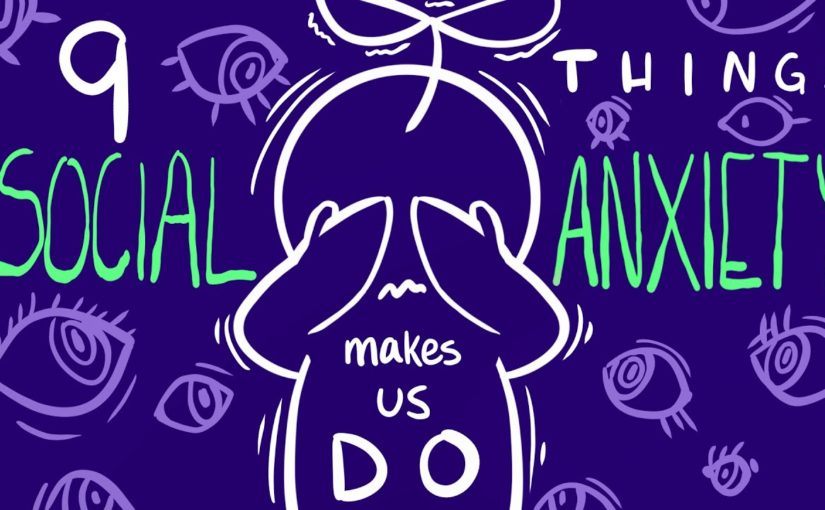
 It can be a lot easier to act busy rather than face the awkwardness of an unwanted conversation. So, this can become a habit of avoidance. If you have social anxiety, five constantly worrying about how everyone sees you. According to the Anxiety and Depression Association of America, those with a social anxiety disorder are increasingly concerned about how they are perceived by others. The last thing they want is to come off as awkward, fumbling, or boring. You’ve likely felt this way at some point throughout your life, whether it’s the desire to fit in with friends or make a good impression on a potential employer with social anxiety. However, this pressure to perform feels constantly heavy and can lead to full-blown panic attacks when in social or performance-based situations Number six is feeling lonely. Even when you’re surrounded by people, People with social anxiety can share this feeling with those who battle, depression and other mental illnesses as well. So, unfortunately, a lot of people can relate to this isolating feeling When social anxiety keeps you from being your true self. It can be difficult to feel included at all. It’s frustrating to be close to others, but not be able to connect with them in a comfortable way. If you’re struggling to effectively communicate and are extremely hesitant to even start a conversation that adds to your feelings of loneliness, even when you’re, surrounded by others, Number seven clenching your teeth and other physical discomforts, you feel shaky or lightheaded when faced with A social situation: Does your heart rate speed up or do your hands tremble? The stress that comes with social anxiety can manifest through physical symptoms. Many of the symptoms are signs of nervousness such as sweating, flushing, and feeling shaky According to Mayo Clinic. You might also be dealing with muscle tension, feeling that your mind has gone blank, or having trouble catching your breath. Number eight obsessing over how you look When you’re, constantly worried about how others perceive you. You’re likely to be concerned with how you look as well. You might have a distorted body image and think that you’re less physically attractive. Your thoughts can flit from your hair to your clothes or flaws in your skin. Thinking that it’s just all wrong In an attempt to feel comfortable in your own skin, you might spend an inappropriate amount of time and money on fixing your appearance, such as shopping for better clothes, getting high-end beauty products, or going on diets. If you think you’re overweight and number nine, you feel more like yourself around the people. You’re comfortable with Yourself, think you’re picky about who you spend time with, and triumph over shyness by conquering social anxiety disorder, Dr. Marie B. Stein and John R. Walker discusses behavior in children called selective mutism. This is when a child speaks and acts normally around select individuals but is completely silent around everyone else or when placed in certain situations. This is a more extreme example, but it shows how those with social anxiety are more likely to relax and open up around people. They already know and trust, do you or anyone you know resonate with any of these points mentioned in this video? If you’re concerned about social anxiety disorder, we encourage you to speak with a mental health professional. They can help you overcome any fears or debilitating problems you might have If you enjoyed watching this video, give us a thumbs up and share it with someone who might find it helpful as well. The studies and references used in this video are listed in the description below Don’t forget to hit the subscribe button for more Psych2go videos and as always thanks for watching and we’ll see you next time.
It can be a lot easier to act busy rather than face the awkwardness of an unwanted conversation. So, this can become a habit of avoidance. If you have social anxiety, five constantly worrying about how everyone sees you. According to the Anxiety and Depression Association of America, those with a social anxiety disorder are increasingly concerned about how they are perceived by others. The last thing they want is to come off as awkward, fumbling, or boring. You’ve likely felt this way at some point throughout your life, whether it’s the desire to fit in with friends or make a good impression on a potential employer with social anxiety. However, this pressure to perform feels constantly heavy and can lead to full-blown panic attacks when in social or performance-based situations Number six is feeling lonely. Even when you’re surrounded by people, People with social anxiety can share this feeling with those who battle, depression and other mental illnesses as well. So, unfortunately, a lot of people can relate to this isolating feeling When social anxiety keeps you from being your true self. It can be difficult to feel included at all. It’s frustrating to be close to others, but not be able to connect with them in a comfortable way. If you’re struggling to effectively communicate and are extremely hesitant to even start a conversation that adds to your feelings of loneliness, even when you’re, surrounded by others, Number seven clenching your teeth and other physical discomforts, you feel shaky or lightheaded when faced with A social situation: Does your heart rate speed up or do your hands tremble? The stress that comes with social anxiety can manifest through physical symptoms. Many of the symptoms are signs of nervousness such as sweating, flushing, and feeling shaky According to Mayo Clinic. You might also be dealing with muscle tension, feeling that your mind has gone blank, or having trouble catching your breath. Number eight obsessing over how you look When you’re, constantly worried about how others perceive you. You’re likely to be concerned with how you look as well. You might have a distorted body image and think that you’re less physically attractive. Your thoughts can flit from your hair to your clothes or flaws in your skin. Thinking that it’s just all wrong In an attempt to feel comfortable in your own skin, you might spend an inappropriate amount of time and money on fixing your appearance, such as shopping for better clothes, getting high-end beauty products, or going on diets. If you think you’re overweight and number nine, you feel more like yourself around the people. You’re comfortable with Yourself, think you’re picky about who you spend time with, and triumph over shyness by conquering social anxiety disorder, Dr. Marie B. Stein and John R. Walker discusses behavior in children called selective mutism. This is when a child speaks and acts normally around select individuals but is completely silent around everyone else or when placed in certain situations. This is a more extreme example, but it shows how those with social anxiety are more likely to relax and open up around people. They already know and trust, do you or anyone you know resonate with any of these points mentioned in this video? If you’re concerned about social anxiety disorder, we encourage you to speak with a mental health professional. They can help you overcome any fears or debilitating problems you might have If you enjoyed watching this video, give us a thumbs up and share it with someone who might find it helpful as well. The studies and references used in this video are listed in the description below Don’t forget to hit the subscribe button for more Psych2go videos and as always thanks for watching and we’ll see you next time.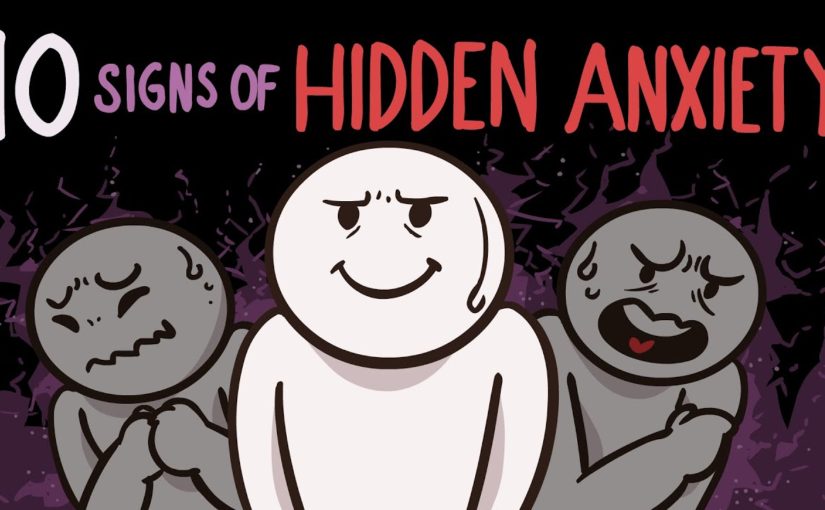
 Life isn’t always kind to us, and self-love and a balanced lifestyle don’t come easily. Living with anxiety, especially if it’s hidden or suppressed, can make it hard for us to feel good about ourselves and let ourselves feel happy. It makes us believe that we don’t deserve it and traps us in a vicious cycle of negative self-talk and constant pressure to be perfect. 9. You have a lot of negative thoughts. Are you a pessimist who is quick to find the downsides in every situation? Do you find yourself getting upset or stressed out over even the most minor inconveniences? Is every day a constant battle with yourself against the spiral of panicked and rational thoughts you have? In 1997, famed psychologist and cognitive therapist, Aaron Beck, termed this kind of thought pattern as catastrophic thinking, which he often observed in his patients who suffered from anxiety. And 10. You experience physical symptoms. Sometimes anxiety can be entirely physical because while your conscious mind may not always be aware of your anxiety it will definitely make itself known to your body. Things like erratic heartbeats, chest palpitations, muscle tension, a clenched jaw, shaky hands up sweating are all indicative of anxiety. Your body may be trying to let your mind know that you’re feeling anxious and stop it before it gets any worse. Do you relate to any of the problems listed here? Or do you do your best to seem ok? And hide your symptoms because you feel embarrassed about your anxiety? The truth is: you’re not alone and having mental health issues is nothing to be ashamed of. What do you plan to do next? Let us know in the comments below! Don’t forget to like this video and subscribe to Psych2Go for more psychology content. Thanks for reading and we’ll see you soon…
Life isn’t always kind to us, and self-love and a balanced lifestyle don’t come easily. Living with anxiety, especially if it’s hidden or suppressed, can make it hard for us to feel good about ourselves and let ourselves feel happy. It makes us believe that we don’t deserve it and traps us in a vicious cycle of negative self-talk and constant pressure to be perfect. 9. You have a lot of negative thoughts. Are you a pessimist who is quick to find the downsides in every situation? Do you find yourself getting upset or stressed out over even the most minor inconveniences? Is every day a constant battle with yourself against the spiral of panicked and rational thoughts you have? In 1997, famed psychologist and cognitive therapist, Aaron Beck, termed this kind of thought pattern as catastrophic thinking, which he often observed in his patients who suffered from anxiety. And 10. You experience physical symptoms. Sometimes anxiety can be entirely physical because while your conscious mind may not always be aware of your anxiety it will definitely make itself known to your body. Things like erratic heartbeats, chest palpitations, muscle tension, a clenched jaw, shaky hands up sweating are all indicative of anxiety. Your body may be trying to let your mind know that you’re feeling anxious and stop it before it gets any worse. Do you relate to any of the problems listed here? Or do you do your best to seem ok? And hide your symptoms because you feel embarrassed about your anxiety? The truth is: you’re not alone and having mental health issues is nothing to be ashamed of. What do you plan to do next? Let us know in the comments below! Don’t forget to like this video and subscribe to Psych2Go for more psychology content. Thanks for reading and we’ll see you soon…
 However, the findings may need
to be interpreted with caution, since nearly half of the studies
didn’t define and adhere to a well-planned exercise regimen
in the control group. Furthermore, an exercise intervention
comparable in intensity to yoga was followed only in three
out of the eight studies included. And, for what it’s worth,
The majority of the studies, six out of eight, were from India. When yoga was carefully
compared to sham yoga, which consisted of chair exercises,
standing exercises, and slow walking to match
the yoga session, the relative yoga
benefits evaporated. Both yoga and sham yoga had identical effects
on blood sugar status. Hence, further well-controlled
Randomized trials are required prior to drawing conclusions
about the benefits of yoga in comparison to physical exercise
in patients with diabetes. Similar tentative conclusions were
reached for yoga for osteoarthritis. Put all the studies together
and yoga may indeed be effective for improving pain, function,
and stiffness in individuals with osteoarthritis of the knee,
compared not only to doing nothing but compared
to other kinds of exercise. They had some issues with
the quality of some of the studies, and so only a weak recommendation
for the use of yoga for osteoarthritis, but hey, if you like yoga or if yoga
is the only kind of exercise you’re willing to do, then
It’s probably better than nothing. Finally, in this video,
Let’s look at the effects of yoga compared to active and inactive
controls meaning like compared to other exercise regimens
or just like doing nothing on physical function and
health-related quality of life in adults aged 60 and older. Compared to doing nothing,
They found clear evidence that yoga improves physical function
and psychological well-being in older adults, so it definitely
better than nothing. What about compared
to other exercises? Yoga pulled ahead for lower limb
strength and lower body flexibility, but for improving balance,
mobility, and walking speed, yoga appeared comparable. Psychologically, yoga appeared
to beat out other exercises for alleviating depression
in older adults, but not anxiety or perceived
mental health in general.
However, the findings may need
to be interpreted with caution, since nearly half of the studies
didn’t define and adhere to a well-planned exercise regimen
in the control group. Furthermore, an exercise intervention
comparable in intensity to yoga was followed only in three
out of the eight studies included. And, for what it’s worth,
The majority of the studies, six out of eight, were from India. When yoga was carefully
compared to sham yoga, which consisted of chair exercises,
standing exercises, and slow walking to match
the yoga session, the relative yoga
benefits evaporated. Both yoga and sham yoga had identical effects
on blood sugar status. Hence, further well-controlled
Randomized trials are required prior to drawing conclusions
about the benefits of yoga in comparison to physical exercise
in patients with diabetes. Similar tentative conclusions were
reached for yoga for osteoarthritis. Put all the studies together
and yoga may indeed be effective for improving pain, function,
and stiffness in individuals with osteoarthritis of the knee,
compared not only to doing nothing but compared
to other kinds of exercise. They had some issues with
the quality of some of the studies, and so only a weak recommendation
for the use of yoga for osteoarthritis, but hey, if you like yoga or if yoga
is the only kind of exercise you’re willing to do, then
It’s probably better than nothing. Finally, in this video,
Let’s look at the effects of yoga compared to active and inactive
controls meaning like compared to other exercise regimens
or just like doing nothing on physical function and
health-related quality of life in adults aged 60 and older. Compared to doing nothing,
They found clear evidence that yoga improves physical function
and psychological well-being in older adults, so it definitely
better than nothing. What about compared
to other exercises? Yoga pulled ahead for lower limb
strength and lower body flexibility, but for improving balance,
mobility, and walking speed, yoga appeared comparable. Psychologically, yoga appeared
to beat out other exercises for alleviating depression
in older adults, but not anxiety or perceived
mental health in general.